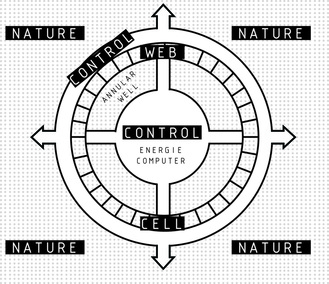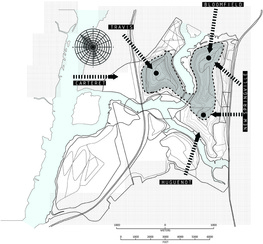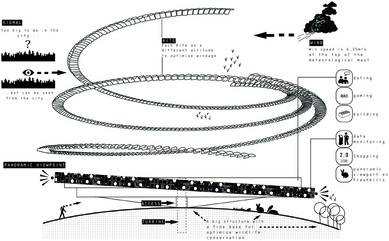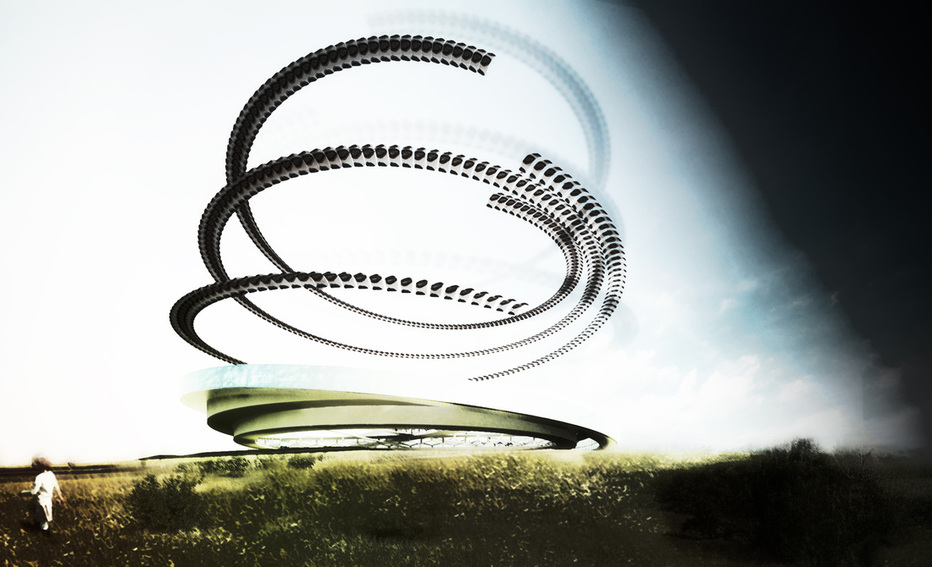DATA SPACE vs FRESHKILLS LANDSCAPE
2012/Lagi Competition/USA //published by Prestel Publishing// Team: Quentin Duvillier & Adrien Piebourg
|
In agreement with the master plan prepared by the «Department of Recreation & Park», the project sets up on the summit of the site. Visible from everywhere, it offers by its rotation a slow show and a surprise for the visitors who come to take advantage of the site. In the Twenty-one century two majors orientations are competiting: On one side the awareness of our environnement’s vulnerability, on the over side omnipresence of the Internet in our everyday lives. The virtual world and the ecological one are fighting on the earth. Each of their supporters is trying to convince of the merits of his case. With over two billion peoples in the world using the Internet regularly, we can easily think that every day more people are posting comments on Facebook, than doing things for the environment. How 2.0 affect the art and shape our environment? Here, a carousel of three rings is powered by wings using wind energy at a very high altitude. The wind circulation is as invisible as the information on the web. The wings represent the individuality of each user in one system. Starting from the central core, the rings are a diagram of the controls exercised between the web and a man, between energy and the web, between man and the environment. The site is opposed to itself, between the observed reality and the desired one. |
|
Every second, 3 million emails are sent, 30 000 phrases are stored on google. Approximately 75% of internet users are adept at least of one social network (Myspace, Facebook, Tweeter...).
It's almost a billion people today who are registered on Facebook. Throughout the world, internet and social networks have become an integral part of the Twenty-one century. " The sustainability movement and the information age have spawned three nascent architectural entities ; the urban farm, the solar farm, and the serveur farm. All three consist of small individual units that function efficiently in large numbers, and therefore operate as economies of scale. Each typically performs with minimal human presence, and has historically been situated outside of the city, where land is cheap and space is plentiful." Data-space Invaders, Thomas Lozada, CLOG |
Every goes online and enters the same world
|
A border between virtual and nature
|







